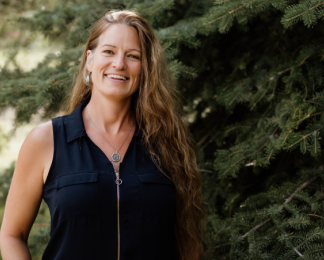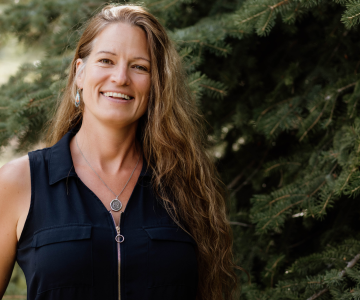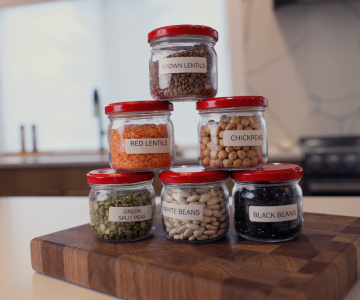I’m already planning what I want to cook for the December holidays. I’m thinking of a dinner that’s a little less traditional this year and I'm looking at lemon risotto and stuffed squash recipes. I get excited about the holidays every year. For some reason cooking for celebrations is a completely different experience for me than the Monday to Friday grind of just getting a meal on the table.
As I was flipping through my cookbooks, my mind was drifting to all of the things that I take for granted and that I should give thanks for; things like being healthy and being able to afford the groceries for this meal.
Times are tough right now. More people are using food banks each year. I've been thinking about how difficult it must be to make a special meal when you're struggling to make ends meet.
People who don't have enough money to buy high-quality food are sometimes called "food insecure." Research shows that having enough nutritious food to eat is important to your health. Those who don't are more at risk of many health conditions including diabetes, heart disease, hypertension, back problems, and poor mental health. Kids with food insecurity have a higher risk of childhood mental health problems, asthma, and depression.
But why? Shouldn’t it be those folks planning rich holiday feasts who have a greater chance of heart disease? It turns out that it’s not that simple.
Not surprisingly, people who are able to buy healthy food are also more likely to have well-paid work, live in good neighbourhoods and afford a fitness pass. Living on a low income, having an unhealthy work environment, and paying a lot for housing, childcare and transportation are stresses that contribute to poor health. On top of all that, unhealthy, highly processed food is usually cheap, while fresh vegetables and fruit can be expensive.
It’s a problem with no easy fix. The good news is that there are many community organizations and local governments that are working to tackle these complicated problems, and Interior Health’s Healthy Communities Program is working alongside many of them.















